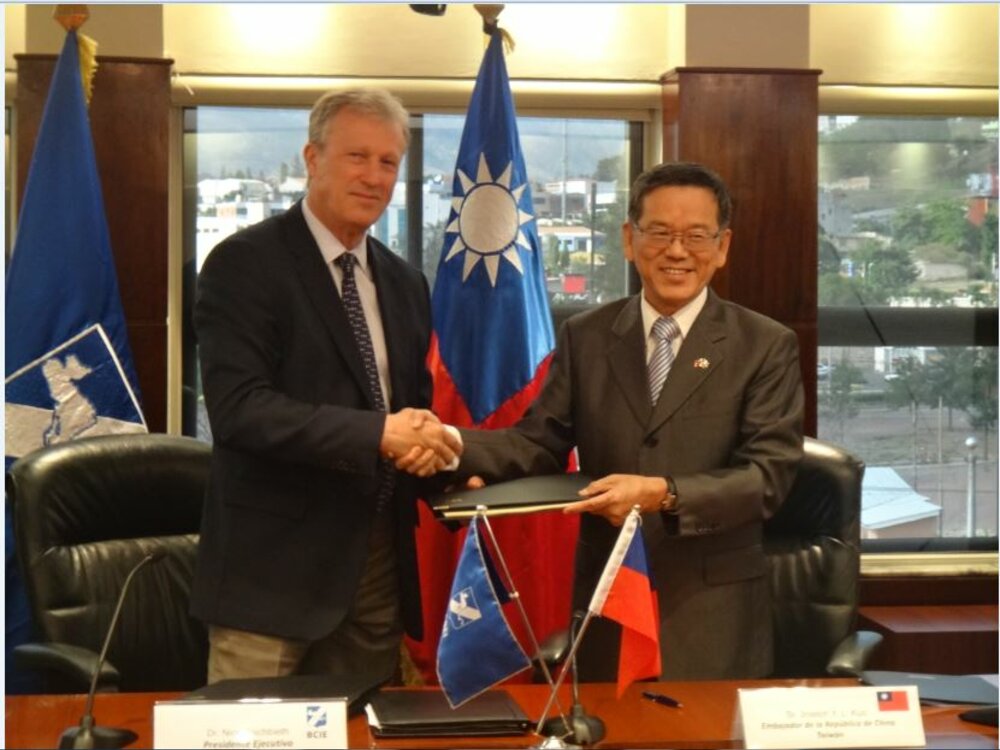CABEI and Taiwan join forces to promote sustainable coffee production

US$3.5 million in non-reimbursable funds will provide technical assistance to 20,600 small coffee producers in order to streamline the regional agricultural sector.
The Central American Bank for Economic Integration (CABEI) and the Government of the Republic of China (Taiwan) signed a US$3.5 million cooperation agreement in the framework of the "Pilot Program to Attend Economically-Challenged Central Americans Affected by Coffee Pests and to Promote Sustainable Coffee Production Practices in the Region."
The pilot program was created to deal with damage caused on coffee plantations by coffee pests and drought, which are both products of climate change. The pilot program aims to reactivate the productive capacity of low-income families who depend directly on coffee production.
The project will provide producers with access to technologies, inputs, tools, credit and technical assistance. It also involves the establishment of early warning and monitoring systems at strategic locations to monitor the evolving conditions of the poorest coffee producing areas in the Central American region.
The agreement was signed by Taiwanese Ambassador to Honduras, Mr. Joseph Kuo, on behalf of the Ministry of Foreign Affairs of Taiwan (Republic of China) and CABEI Executive President Dr. Nick Rischbieth. "The program has two components: The first is financial and involves maintenance and renovation activities at coffee plantations and an investment to modernize the agricultural sector by means of strengthening productive systems. The second component involves technical assistance to implement best practices and promote sustainable coffee production," stated Dr. Nick Rischbieth.
For his part, the Taiwanese Ambassador Mr. Joseph Kuo declared that, "We are confident that this instrument will contribute to the modernization of the agricultural sector through its implementation by the region’s Ministries of Livestock and Agriculture and Ministries and Coffee Institutes.
The Pilot Program to Attend Economically-Challenged Central Americans Affected by Coffee Pests and to Promote Sustainable Coffee Production Practices in the Region receives financial support from the Taiwanese government through its International Cooperation and Development Fund (TaiwanICDF) and its Foreign Affairs Ministry. The program has available funds of to up to US$86.0 million with $80.0 million allocated to financing and $6.0 million to technical assistance.





